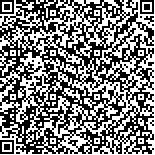| 引用本文: |
詹家仪, 杨媛媛, 詹家国, 陈向云, 李尧锋.中药单体及复方通过调控PI3K/Akt信号通路防治心肌缺血再灌注损伤的研究进展[J].湖南中医药大学学报,2024,44(6):1124-1132[点击复制] |
|
| |
|
|
| 本文已被:浏览 2854次 下载 1664次 |
| 中药单体及复方通过调控PI3K/Akt信号通路防治心肌缺血再灌注损伤的研究进展 |
| 詹家仪,杨媛媛,詹家国,陈向云,李尧锋 |
| (重庆大学附属肿瘤医院, 重庆 400030;天津中医药大学研究生院, 天津 301617;贵州中医药大学基础医学院, 贵州 贵阳 550025) |
| 摘要: |
| 再灌注治疗是急性心肌梗死(acute myocardial infarction, AMI)的常用防治手段,但在改善供血的过程中可能诱发心率失常、心肌细胞凋亡等一系列损伤,即心肌缺血再灌注损伤(myocardial ischemia-reperfusion injury, MIRI)。现代中医学家认为MIRI的基本病机是本虚标实,本虚以气虚、阳虚为主,标实多为痰浊、瘀血,通常以虚实夹杂者多见,治疗当以扶正祛邪兼顾。磷酸肌醇3-激酶/蛋白激酶B(phosphoinositide 3-kinase/protein kinase B, PI3K/Akt)信号通路在防治MIRI过程中对心肌细胞的存活和功能发挥具有重要作用。该通路参与介导细胞增殖、生长、存活等生理过程,又可调控心肌细胞凋亡、自噬、氧化应激和炎症反应等多种病理过程,此双向调节作用与中医学的“扶正祛邪”理论不谋而合。基于此,对中药防治MIRI与PI3K/Akt信号通路的关系进行综述,以期为MIRI的治疗和新药开发提供参考。 |
| 关键词: 心肌缺血再灌注损伤 急性心肌梗死 磷酸肌醇3-激酶/蛋白激酶B信号通路 中医药 综述 |
| DOI:10.3969/j.issn.1674-070X.2024.06.028 |
| 投稿时间:2023-12-20 |
| 基金项目:国家自然科学基金项目(82360965,81860873)。 |
|
| Research progress in preventing and treating myocardial ischemia-reperfusion injury through regulation of the PI3K/Akt signaling pathway by monomers and compound formulas of Chinese medicines |
| ZHAN Jiayi, YANG Yuanyuan, ZHAN Jiaguo, CHEN Xiangyun, LI Yaofeng |
| (Cancer Hospital of Chongqing University, Chongqing 400030, China;School of Graduate, Tianjin University of Chinese Medicine, Tianjin 301617, China;School of Basic Medicine, Guizhou University of Chinese Medicine, Guiyang, Guizhou 550025, China) |
| Abstract: |
| Reperfusion therapy is a common method for preventing and treating acute myocardial infarction (AMI), but it may induce a series of injuries such as arrhythmia and cardiomyocyte apoptosis in the process of improving blood supply, which is called myocardial ischemia-reperfusion injury (MIRI). Modern Chinese medicine practitioners believe that the basic pathogenesis of MIRI is deficiency in root and excess in manifestation, with qi deficiency and yang deficiency as the main causes of deficiency root, and phlegm-turbidity and blood stasis as the main causes of excess manifestation. The combination of deficiency and excess is commonly seen, and the treatment should focus on reinforcing healthy qi to eliminate pathogenic factors. The PI3K/Akt signaling pathway plays an important role in the survival and functional activities of cardiomyocytes during the prevention and treatment of MIRI. This pathway participates in mediating physiological processes such as cell proliferation, growth, and survival, and can also regulate various pathological processes such as myocardial cell apoptosis, autophagy, oxidative stress, and inflammatory response. This bidirectional regulatory effect coincides with the theory of "reinforcing healthy qi to eliminate pathogenic factors" in Chinese medicine. Based on this, this paper reviews the relationship between Chinese medicine in preventing and treating MIRI and the PI3K/Akt signaling pathway, aiming to provide references for the treatment of MIRI and the development of new drugs. |
| Key words: myocardial ischemia-reperfusion injury acute myocardial infarction PI3K/Akt signaling pathway Chinese medicine review |
|

二维码(扫一下试试看!) |
|
|
|
|




